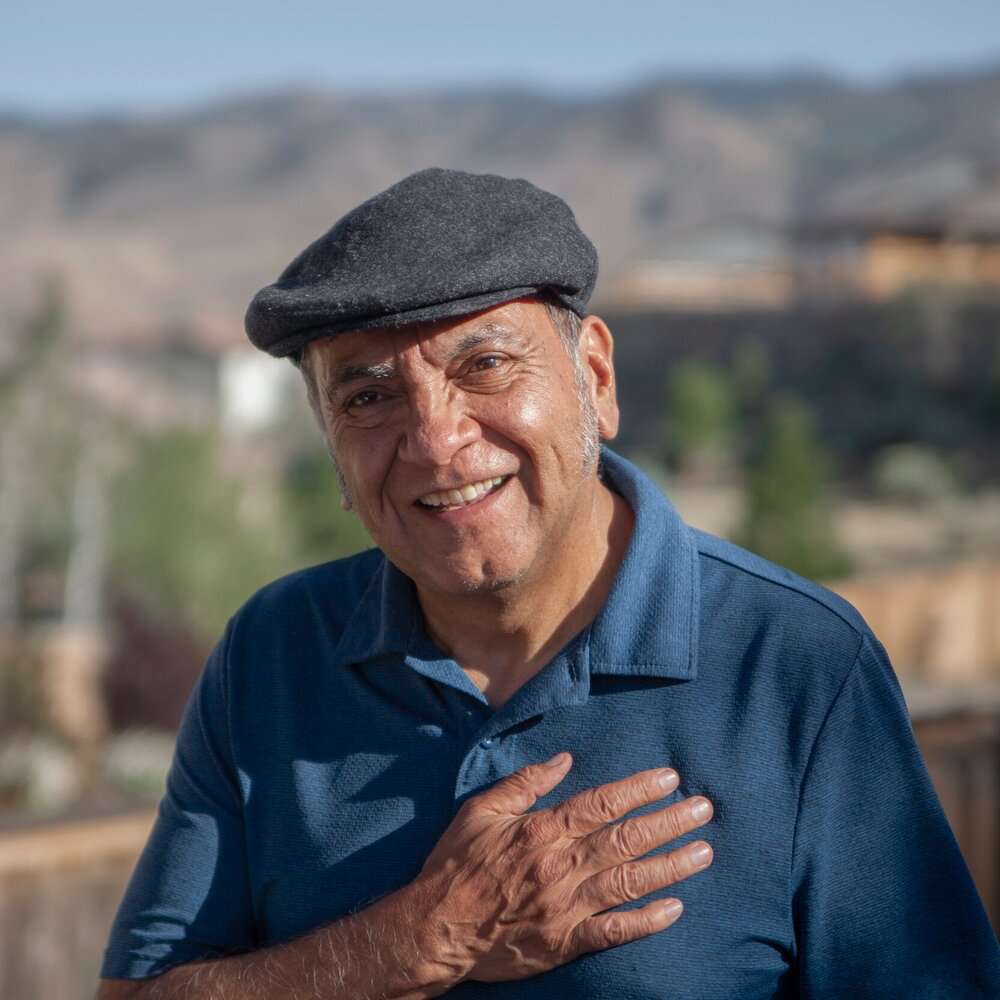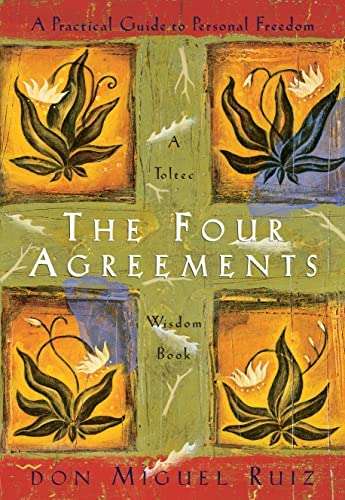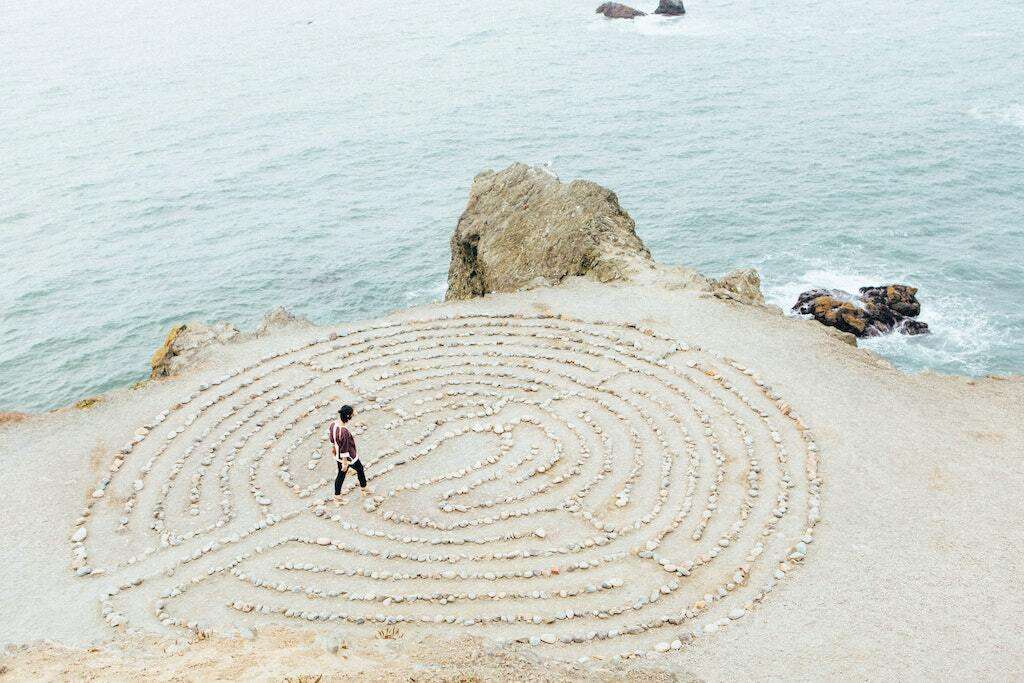Don Miguel Ruiz’s The Four Agreements was an instant classic more than 25 years ago. And the life lessons continue to be as relevant as ever.
It’s always hard to look back at things we wish would have done differently. The best way to avoid that? Create fewer scenarios that leave us feeling regret in the first place.
That’s the core focus behind the New York Times bestselling book, The Four Agreements, by don Miguel Ruiz. The teachings in the popular book, which turned 25 years old last November, remains as relevant as ever.
Who is don Miguel Ruiz?
The Four Agreements author don Miguel Ruiz, is a world-renowned Mexican spiritual teacher who identifies as an expert in Toltec wisdom. His books have sold more than 12 million copies and are published in 46 languages.
According to Ruiz’s website, he grew up the youngest of 13 children in rural Mexico. His parents were healers and practitioners focused on ancient Toltec wisdom. The Toltec culture was prominent in pre-Columbian Mesoamerica and was based on polytheism and the deity Quetzalcoatl, which later became a central figure in the Aztec culture.

Following a near-fatal car accident, Ruiz published The Four Agreements in November 1997 based on the teachings of his childhood. He left medical school after the car accident and worked with his mother to better understand her ancestral teachings, which helped put him on his own path of self-awareness.
The Four Agreements became a New York Times bestseller, appearing on the list for more than a decade. It has sold more than six million copies in the U.S., and seven million copies worldwide.
The success of The Four Agreements earned Ruiz global recognition and a dedicated following. He has dedicated his life to sharing the teachings of the Toltec traditions through a modern lens. His other books include The Mastery of Love, The Voice of Knowledge, Prayers, and, The Fifth Agreement, a collaboration with his son, don José Ruiz.
What are The Four Agreements?
Based on the Indigenous Toltec take on human existence and our relationship with nature and each other, Ruiz distills the complicated layers of human nature into a 160-page digestible guide for the modern world in The Four Agreements.
According to Ruiz’s philosophy, our worlds are all made up of labels, concepts, and beliefs. But he says they’re all illusions — life, as the nursery rhyme goes, is but a dream.
Each of us is the product of our environments and programming through words and actions of others surrounding us. These form our beliefs and boundaries and how we engage with others and ourselves. They are the roadmaps.

As most of us already know, these boundaries and rules can cause lots of harm — to others and ourselves. But how do we change? How do we forge a new path, and set new boundaries that protect us in healthier ways?
The Four Agreements is heavy on the new-age speak, which is not for everyone. But the teachings are solid guideposts for living stress-free and reducing negative interactions with others.
Ruiz’s Four Agreements have earned praise from heavy hitters including Oprah Winfrey, who said the book made a tremendous difference in how she thinks and acts “in every encounter.” That’s no small statement.
So, what are The Four Agreements? According to Ruiz, they are guiding principles of self-responsibility and self-awareness that can make big changes in our life experiences.
1. Be impeccable with your word
The modern world is instantaneous. It encourages immediate reactions rather than reflection and thoughtfulness. This can make us more prone not only to say things we don’t mean but also to fail to follow through on things we do say.
Words have power — wherever and whenever they’re used. Be conservative, deliberate, and respectful with yours. Say what you mean and see how that impacts what you get back. When in doubt? Say less — or nothing at all.
2. Don’t take anything personally
People. We’re all like snowflakes, right? The way we see the world is unique to each individual and that informs our words and actions. It can be incredibly hard to keep that in mind, particularly in challenging moments. How someone sees you is how they see you, though. It’s not necessarily how you are.
Ruiz says if we can remember that each reality is a unique landscape for the individual to navigate, it will help us to not take things personally. When this agreement is fully embraced, it can be one of the most liberating experiences.

How others see the world, and how they see us, is their right, whether we agree with it or not. That doesn’t mean we can’t hold opposing views, or work to find happy mediums. But we come out the victor no matter what the resolution is if we don’t take things personally.
“Whatever happens around you, don’t take it personally,” Ruiz says. “Nothing other people do is because of you. It is because of themselves.”
Or more colloquially, in Taylor Swift parlance: shake it off.
3. Don’t make assumptions
Just like we shouldn’t take things others say or do personally, we need to be mindful of our own assumptions. They can cause much of the same frustrations and reactions.
Assumptions can lead us down the road of problematic behaviors including entitlement, gossip, and unrealistic expectations. Assumptions can happen in all kinds of relationships from our most intimate to an email.
We’re all guilty of making assumptions based on either what we see or hear or what we don’t see or misunderstand.

The best way to stop making assumptions? Ask questions. This can sometimes be difficult (both asking and being asked) so reflect on the other agreements when in this situation: be impeccable with your word, don’t take anything personally, and the next agreement: always do your best.
“If others tell us something we make assumptions, and if they don’t tell us something we make assumptions to fulfill our need to know and to replace the need to communicate,” Ruiz writes. “Even if we hear something and we don’t understand we make assumptions about what it means and then believe the assumptions. We make all sorts of assumptions because we don’t have the courage to ask questions.”
4. Always do your best
What is your best? How do you know what your best even is? The answer is in the question. The more you try to do your best, the more clearly you’ll be able to see when you’re falling short or trying too hard. Both have their consequences.
Don’t try hard enough and you may feel inadequate, leading you to fall out of step with the other agreements as you seek to deflect the focus from yourself. Try too hard and you run the risk of overextending yourself and setting unrealistic expectations that can lead to the same result as not doing your best.

What our best is changes from day to day, moment to moment. When we’re honest with ourselves about our capacity — whether that’s for making dinner or making a work deadline — we’re more likely to find we’re doing our best consistently.
One key success marker for doing our best is enjoying what we do — finding that sense of presence and zen at the moment (or in “the zone”) and we’re more likely to find that we’re doing our best without the expectation of reward or praise.
“Not enjoying what is happening right now is living in the past and being only half alive. This leads to self pity, suffering, and tears,” Ruiz wrote.
Want to give it a read? Grab The Four Agreements here.
Related on Ethos:
All products featured on Ethos have been independently selected by our editorial team.
When you buy something through our links, Ethos may earn an affiliate commission.


